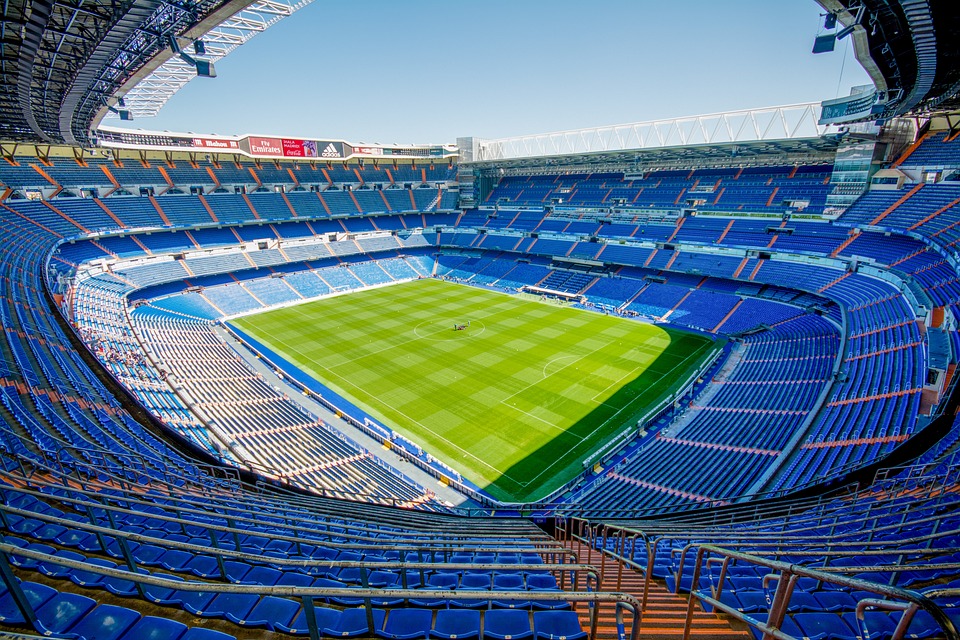In a harrowing turn of events, a group of Israeli football supporters has returned home to Israel after being caught up in a night of violence in Amsterdam, which both Israeli and Dutch authorities have condemned as anti-Semitic. The incident, which occurred after a football match in the Dutch capital, has highlighted the growing threat of anti-Semitism in Europe, particularly in the context of sporting events.
On Friday, the group of Israeli supporters landed safely at Israel’s Ben Gurion Airport, marking the end of a traumatic ordeal. The violence, which reportedly targeted the group because of their Jewish identity, has sparked outrage in both Israel and the Netherlands, and has led to calls for greater protection of Jewish communities across Europe.
The Attack in Amsterdam: Anti-Semitic Violence in the Spotlight
The violence erupted late Thursday evening, shortly after the football match in Amsterdam, when a group of Israeli fans became the target of an organized assault. According to witnesses, the attackers—who reportedly shouted anti-Semitic slurs—violently confronted the Israeli supporters, resulting in injuries and several traumatic experiences for those involved.
While the specifics of the match remain unclear, reports suggest that the Israeli fans, who were attending the match or were in the city as part of a fan group, were singled out because of their nationality and religious identity. Some victims were physically assaulted, while others were verbally harassed. Police intervened promptly, and the situation was eventually brought under control. However, by the time authorities arrived, the damage had already been done.
The Israeli fans, many of whom were already shaken by the attack, were flown back to Israel the following day. Upon their return, they were met by concerned family members and officials at Ben Gurion Airport, relieved that they were finally home but deeply impacted by the ordeal.
Condemnation from Israeli and Dutch Leaders
The incident has sparked a wave of condemnation from leaders in both Israel and the Netherlands. Prime Minister Benjamin Netanyahu expressed his “outrage” over the violence and vowed to hold those responsible accountable.
“I am deeply disturbed by this vicious attack on Israeli citizens abroad,” Netanyahu said in a statement. “This is an assault not only on individuals but on the very values of tolerance and respect that we hold dear. Israel will take every measure necessary to ensure the safety of its citizens, wherever they are.”
Dutch authorities, too, were quick to condemn the violence, with Dutch Prime Minister Mark Rutte labeling the attack as a “shocking and unacceptable act of anti-Semitism.” In a public statement, Rutte assured that the Dutch government would thoroughly investigate the incident and work to prevent further acts of anti-Semitic violence in the future.
Amsterdam’s Mayor Femke Halsema also responded, emphasizing that the city would take immediate action to bolster security for Jewish communities and ensure that such incidents would not happen again. “Anti-Semitism has no place in Amsterdam, or in any part of our society,” Halsema said. “We will act swiftly to protect all communities from hatred and violence.”
The Impact on Jewish Communities in Europe
The attack in Amsterdam is part of a larger pattern of growing anti-Semitic incidents across Europe. Over the past several years, Jewish communities in European countries like France, the United Kingdom, and the Netherlands have faced rising levels of hate-driven violence, harassment, and discrimination. This spike in anti-Semitism has been attributed to various factors, including far-right extremism, the politicization of the Israeli-Palestinian conflict, and increasing social tensions.
For many Jewish individuals, including the Israeli supporters who were targeted in Amsterdam, incidents like this create a sense of vulnerability and insecurity. Rabbi Pinchas Goldschmidt, President of the Conference of European Rabbis, responded to the violence by calling for heightened vigilance and stronger protections for Jewish communities.
“While governments are taking necessary steps to combat anti-Semitism, we must also address the underlying social issues that fuel these hate crimes,” Rabbi Goldschmidt stated. “The safety of Jewish people must be a priority, and it is crucial that Europe take firm and decisive action to stamp out anti-Semitism in all its forms.”
Return to Israel: A Mixed Emotions Homecoming
While the Israeli football fans are grateful to be back home, their return to Israel marks the end of a traumatic chapter. The emotional toll of the violence, coupled with the uncertainty they faced during their time abroad, will likely leave a lasting impact on many of the affected supporters.
For some, the return to Israel is a welcome relief—a return to safety and the comfort of home after a difficult experience abroad. However, the emotional scars from the attack will take longer to heal. The physical and psychological effects of the violence are significant, and many of the victims will likely require medical and psychological support to recover.
In Israel, the focus is now on providing care for the affected individuals and ensuring that the broader community can continue to live without fear of such attacks. The Israeli government has pledged to support those affected and to continue working with international partners to combat anti-Semitism worldwide.
Football and Anti-Semitism: A Dangerous Intersection
The violence in Amsterdam serves as a stark reminder of the dangers that can arise when football and anti-Semitism intersect. Football matches, with their passionate and sometimes hostile fan cultures, have increasingly become venues for expressions of hatred, particularly from far-right extremists. The targeting of Jewish supporters during these events, as seen in Amsterdam, has raised alarms about the growing presence of anti-Semitism within football fanbases.
Football authorities have a critical role to play in combating these issues. Organizations like FIFA, UEFA, and national football federations must work more actively to prevent hate speech and violence at their events. This includes not only imposing strict penalties for racist and anti-Semitic behavior but also supporting initiatives that promote tolerance and diversity within the sport.
Moreover, governments and law enforcement must work together to address the rise of hate-driven violence, both on and off the pitch. Anti-Semitic acts like the one in Amsterdam are part of a broader trend of growing hate crimes against Jewish people in Europe, and comprehensive solutions are needed to address the root causes of this violence.
A Call for Greater Protection and Tolerance
As the Israeli football supporters return home, the broader Jewish community in Europe remains on edge. Attacks like this are not isolated incidents, but part of a worrying trend of rising anti-Semitism that needs urgent attention. European governments, football organizations, and civil society must come together to confront this threat and ensure that Jewish people, whether at football matches or in their everyday lives, are protected from hate.
The return of the Israeli supporters to Israel marks the end of this chapter, but for many, the fight against anti-Semitism is far from over. As Europe grapples with the rising tide of hate, the international community must unite in its commitment to a future of tolerance, safety, and respect for all individuals, regardless of their identity.
Conclusion
While the Israeli football supporters are back home in Israel, safe from the violence they faced in Amsterdam, the impact of the attack will reverberate across Europe. The rise in anti-Semitic incidents across the continent calls for stronger, more decisive action. Governments must increase security, promote tolerance, and work to eradicate the hate that fuels such violence. Only then can European cities truly be places where all communities—Jewish and otherwise—can feel safe, valued, and protected from discrimination.
References:
- Prime Minister’s Office, Israel. (2024). Statement on Anti-Semitic Attack in Amsterdam. Retrieved from Prime Minister’s Office.
- Dutch Government. (2024). Condemnation of Anti-Semitic Violence in Amsterdam. Retrieved from Government of the Netherlands.
- Football Against Hate. (2023). Addressing Anti-Semitism in Football and Beyond. Retrieved from Football Against Hate.
- Anti-Defamation League. (2023). Rising Anti-Semitism in Europe: A Report on Hate Crimes. Retrieved from ADL.



